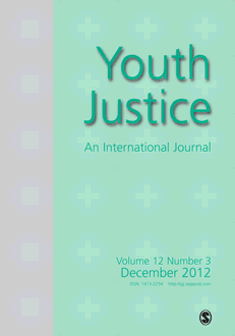
Youth Justice-An International Journal
Scope & Guideline
Illuminating the complexities of youth justice systems worldwide.
Introduction
Aims and Scopes
- Youth Justice Policy and Reform:
The journal explores various youth justice policies and their implications, advocating for reforms that prioritize the rights and well-being of young people. - Children's Rights and Participation:
A significant focus is placed on children's rights within justice systems, emphasizing the importance of their participation and voice in legal processes. - Social and Cultural Contexts of Youth Offending:
The journal investigates how social, cultural, and economic factors influence youth crime and justice, promoting a contextual understanding of juvenile offending. - Restorative Justice Approaches:
There is a consistent emphasis on restorative justice practices, aiming to repair harm and foster reconciliation between offenders, victims, and communities. - Mental Health and Youth Justice:
The intersection of mental health issues and youth justice is a core area of research, addressing the needs of vulnerable young individuals within the system. - Comparative Analyses:
The journal engages in comparative studies of youth justice systems across different countries, identifying best practices and lessons learned in various contexts.
Trending and Emerging
- Intersectionality in Youth Justice:
There is an increasing focus on how intersecting identities, such as race, gender, and socioeconomic status, affect youth experiences within the justice system. - Impact of Technology and Social Media:
Emerging research is examining the role of technology and social media in youth crime, including issues related to cyberbullying, online exploitation, and digital justice. - Global Perspectives on Youth Justice:
An expanding interest in comparative and global perspectives highlights differences and similarities in youth justice systems worldwide, fostering a more international dialogue. - Mental Health and Trauma-Informed Care:
Recent publications emphasize the importance of understanding mental health issues and trauma in youth, advocating for trauma-informed approaches within the justice system. - Youth Advocacy and Empowerment:
There is a growing trend toward research that empowers youth voices and advocates for their rights within the justice system, highlighting participatory practices. - Restorative Practices and Community Engagement:
The journal is increasingly featuring studies on restorative practices and community engagement, emphasizing collaborative approaches to youth justice.
Declining or Waning
- Traditional Punitive Approaches:
There appears to be a declining emphasis on punitive measures within youth justice, as the field increasingly advocates for more rehabilitative and restorative practices. - One-dimensional Studies on Youth Crime:
Previous research that focused solely on the criminal behavior of youth without considering broader social contexts or systemic issues is becoming less common. - Homogeneous Perspectives on Youth Justice:
Research that lacks diversity in perspectives, particularly those that do not include the voices of affected youth or marginalized communities, is gradually being overshadowed by more inclusive studies.
Similar Journals
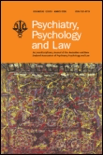
Psychiatry Psychology and Law
Pioneering Research in Psychiatry and Legal StudiesPsychiatry Psychology and Law is a prestigious journal dedicated to advancing the understanding of the interconnections among mental health, psychological conditions, and legal contexts. Published by Routledge Journals, Taylor & Francis Ltd, this journal plays a pivotal role in the field, evidenced by its impressive Q1 ranking in Law and notable positions in multiple disciplines such as Psychiatry and Forensic Medicine. With a commitment to disseminating high-quality research, it has established itself as an essential resource for researchers, professionals, and students in psychology and legal studies. While currently not offering Open Access options, the journal thrives on rigorous peer review processes that ensure only the most impactful studies from its inception in 1994 to the present are published. Covering a diverse range of topics, Psychiatry Psychology and Law fosters interdisciplinary dialogue and innovation, making it a vital platform for advancing scholarly discourse in the critical intersection of mental health and law.
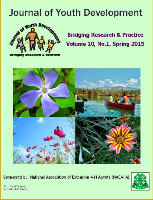
Journal of Youth Development
Connecting Research and Practice for Youth Well-BeingThe Journal of Youth Development, published by the University of Pittsburgh, University Library System, serves as a critical platform for advancing research and discourse in the fields of Developmental and Educational Psychology and Life-span and Life-course Studies. Since its transition to Open Access in 2017, this journal has made significant strides in disseminating vital research findings that inform youth-related policies and practices. With an ISSN of 2325-4017, the journal is indexed in internationally recognized databases, enhancing its visibility and providing researchers, professionals, and students with access to contemporary studies and discussions. The journal aims to encourage interdisciplinary collaboration and innovation, thus fostering a deeper understanding of youth development processes from infancy to late adolescence. Although currently ranked in the fourth quartile for both categories, it remains a valuable resource for those invested in shaping effective strategies for youth empowerment and well-being through empirical research. With converged years from 2019 to 2024, it sets a forward-looking agenda crucial for understanding the complexities of youth in a rapidly evolving social landscape.
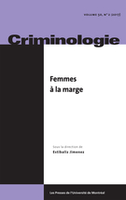
Criminologie
Advancing the Dialogue on Crime and JusticeCriminologie is a leading journal dedicated to advancing the field of criminology and criminal justice, published by PRESSES UNIV MONTREAL. With its ISSN 0316-0041, this Canadian journal serves as a critical platform for researchers, academics, and practitioners to disseminate original research, theoretical discussions, and empirical studies that enrich our understanding of crime and justice. Operating within the scope of legal studies, it is ranked Q3 in Law according to the 2023 category quartiles, reflecting its reputable standing among peers. Notably, Criminologie holds a Scopus ranking of 610 out of 1025 in the Social Sciences Law category, placing it within the 40th percentile. The journal publishes contributions that inform policy and practice, aiming to bridge the gap between theory and application in the criminal justice system. Although it does not provide open access options, the journal is committed to upholding rigorous academic standards and fostering scholarly discourse within the criminology community.
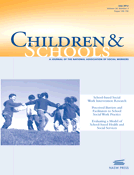
Children & Schools
Fostering resilience and growth in educational settings.Children & Schools, published by Oxford University Press, serves as a vital academic journal that bridges the fields of education and social health, demonstrating its importance in addressing the multifaceted challenges facing children in educational settings. With an ISSN of 1532-8759, this journal is committed to disseminating high-quality research from 1978 to the present, marking its influential position as a Q2 ranked journal in both Education and Health (social science) categories as of 2023. The journal's engaging content reflects its dedication to advancing knowledge and practice within these critical areas, appealing to researchers, educators, social workers, and policymakers alike. It is especially noted for its accessibility through robust scholarly contributions, making it a pivotal resource for understanding the developmental and social needs of children in schools. As a member of the Scopus rankings, boasting a 70th percentile in Education and a 63rd percentile in Health (social science), Children & Schools remains essential for advancing research and best practices in nurturing the educational environment for children.

Canadian Journal of Family and Youth
Unlocking insights into the lives of families and youth.Canadian Journal of Family and Youth, published by University of Alberta Libraries, is a leading scholarly platform dedicated to advancing research and discussion in the fields of family studies and youth development. With its commitment to Open Access, this journal aims to disseminate knowledge without barriers, ensuring that vital research reaches diverse audiences including academics, practitioners, and policymakers. The journal encompasses a wide range of topics relevant to contemporary family dynamics and youth-related issues, promoting interdisciplinary dialogues and innovative methodologies. Located in the vibrant academic community of Edmonton, Alberta, the journal contributes significantly to its field by showcasing high-quality, peer-reviewed articles that address the complexities of family and youth experiences in Canada and beyond. With continuous efforts to uphold rigorous academic standards, the Canadian Journal of Family and Youth serves as an invaluable resource for those invested in the welfare and development of families and youth.

Child & Youth Services
Fostering Growth: Elevating the Standards of Child WelfareChild & Youth Services is an esteemed academic journal published by Routledge Journals, Taylor & Francis Ltd, focusing on the multidimensional aspects of child and youth welfare, development, and services. With an ISSN of 0145-935X and an E-ISSN of 1545-2298, this journal has been a vital platform for research disseminating innovative strategies and practices for improving the quality of life for children and adolescents globally. Its editorial board comprises experts in the field, ensuring rigorous peer review and high scholarly standards. The journal currently holds a Q3 rank in Health (Social Science) and a Q2 rank in Social Sciences (Miscellaneous) indicating its growing influence and relevance. Researchers and practitioners can greatly benefit from its comprehensive discourse, which spans multiple years of converged research from 1977 to 2024. Although not open access, the journal provides vital insights into contemporary issues, making it essential reading for those engaged in child and youth services, policy-making, and academic study.

Torres de Lucca-Revista Internacional de Filosofia Politica
Fostering Critical Discourse in Political PhilosophyTorres de Lucca-Revista Internacional de Filosofia Politica is a premier academic journal published by UNIV COMPLUTENSE MADRID, FAC FILOSOFIA, specializing in the fields of Political Philosophy, Sociology, and Political Science. Since its inception in 2012, it has proudly maintained an Open Access policy, ensuring that groundbreaking research is accessible to scholars, practitioners, and students worldwide. With an impact factor reflected in its 2023 category quartiles as Q2 in Philosophy and Q3 in Sociology and Political Science, the journal occupies a significant niche in its respective fields. It currently ranks 365th out of 806 in Arts and Humanities for Philosophy and 1107th out of 1466 in Social Sciences for Sociology and Political Science according to Scopus. The journal aims to foster rigorous discourse and critical analysis of contemporary philosophical and political issues, serving as a vital platform for researchers to share their insights and contribute to the evolution of thought in these dynamic disciplines.

Osterreichische Zeitschrift fuer Soziologie
Illuminating Trends in Social SciencesOsterreichische Zeitschrift fuer Soziologie is a prominent academic journal published by Springer Vieweg-Springer Fachmedien Wiesbaden GmbH, based in Switzerland. With an ISSN of 1011-0070 and E-ISSN 1862-2585, this journal serves as a vital platform for advancing scholarship in the field of sociology. It is categorized in the Q3 quartile for Social Sciences (miscellaneous) in 2023, demonstrating its role in contributing to the broader academic discourse. With convergence years spanning from 2001 to 2024, the journal provides a wealth of research articles that address contemporary sociological issues, trends, and theoretical developments. While primarily subscription-based, the journal maintains rigorous academic standards, making it a valuable resource for researchers, professionals, and students seeking to deepen their understanding of social dynamics. Its position in the Scopus rank reflects its commitment to fostering quality scholarship, ranked #167 out of 275 in the General Social Sciences category. Engage with this esteemed publication to stay informed about the latest developments in sociology.

CHILD & YOUTH CARE FORUM
Championing Voices in Child and Youth Advocacy.CHILD & YOUTH CARE FORUM, published by SPRINGER, stands as a leading academic journal in the field of social sciences, specifically focused on life-span and life-course studies. With its ISSN 1053-1890 and E-ISSN 1573-3319, this journal serves as a vital platform for disseminating innovative research and practical insights that address critical issues affecting children and youth care across diverse contexts. With an impressive impact factor and rankings placing it in the Q2 category for Life-span and Life-course Studies and Q1 for Social Sciences (miscellaneous), CHILD & YOUTH CARE FORUM is recognized for its rigorous peer-review process and high-quality publications. Researchers, practitioners, and students are encouraged to explore a wealth of articles that inform policy-making and practice, enhancing the well-being of young populations. The journal is accessible primarily through subscription, reflecting its commitment to excellence in the realm of child and youth care.
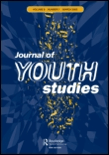
Journal of Youth Studies
Connecting Scholars to the Heart of Youth StudiesJournal of Youth Studies is a pivotal academic publication catering to the dynamic field of youth research, examining the social, cultural, and educational factors that influence young people's lives today. Published by Routledge Journals, Taylor & Francis Ltd, this journal stands out in the realm of sociology and social sciences, boasting impressive impact factor rankings with Q2 in Lifespan and Life-course Studies and Q1 in both Social Sciences (miscellaneous) and Sociology and Political Science as of 2023. Situated in the United Kingdom with a robust editorial board, the journal encourages interdisciplinary discourse and is committed to advancing knowledge in youth-related topics, offering a vital platform for researchers, professionals, and students alike. While currently not open access, the journal features a diverse array of empirical research and theoretical explorations that are indispensable for understanding the complexities of youth in contemporary society. Engaging with this journal means joining an esteemed community dedicated to impactful scholarship from 2003 extending into 2024 and beyond.